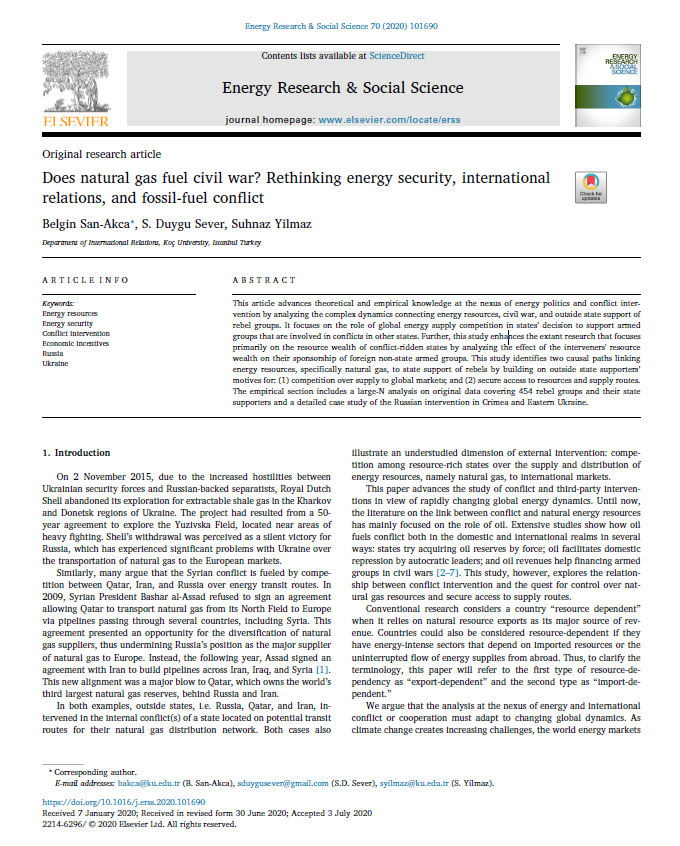Does natural gas fuel civil war? Rethinking energy security, international relations, and fossil-fuel conflict
As tension escalate in the Eastern Mediterranean, energy politics is once again in the limelight. When do energy resources trigger conflict, when do they facilitate cooperation? This article advances theoretical and empirical knowledge at the nexus of energy politics and conflict intervention by analyzing the complex dynamics connecting energy resources, civil war, and outside state support of rebel groups. It focuses on the role of global energy supply competition in states’ decision to support armed groups that are involved in conflicts in other states. Further, this study enhances the extant research that focuses primarily on the resource wealth of conflict-ridden states by analyzing the effect of the interveners' resource wealth on their sponsorship of foreign non-state armed groups.
This study identifies two causal paths linking energy resources, specifically natural gas, to state support of rebels by building on outside state supporters’motives for: (1) competition over supply to global markets; and (2) secure access to resources and supply routes. The empirical section includes a large-N analysis on original data covering 454 rebel groups and their state supporters and a detailed case study of the Russian intervention in Crimea and Eastern Ukraine. The results have significant theoretical and policy implications.


TOPIC RELATED HIGHLIGHTS:
